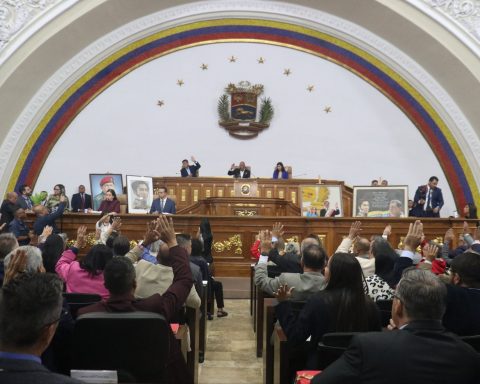We feel that the taxpayer will be accompanied by the authority and I see positive that voluntary compliance with the obligations is requested first.
Laura Grajeda, president of the IMCP.
The Mexican Institute of Public Accountants (IMCP) assured that during this year the control of the authority towards taxpayers will be important and proof of this is the “Master Plan for Control and Collection 2023”, of the Tax Administration Service (SAT).
“The figures for increases (in inspection) that have taken place in the present administration are extremely relevant and will continue along this path,” Laura Grajeda, president of the IMCP, told El Economista.
The SAT reported, in a preliminary way, that during the first four years of the current administration, more than 1.97 trillion pesos have been collected through audits and collection efficiency, also known as additional collection efforts.
Only in 2022, the federal agency achieved a collection of 616,281 million pesos for the additional efforts, which meant an annual increase of 8.9% in real terms.
“The SAT Plan focuses on management powers and supervision. We feel that the taxpayer will be accompanied by the authorities and I see positive that voluntary compliance with the obligations is requested first. I see it as a yellow card, we consider it viable to think of administrative facilities so that taxpayers are motivated in the first instance”, commented Grajeda Trejo.
The federal treasury’s strategy consists of four axes: Authority Management, Examination Actions, Economic Sectors to Review, and Concepts and Conducts to Review.
In the Authority Management, the accompaniment of the taxpayer for voluntary compliance is established and encourage, through surveillance, the regularization of omitted taxpayers or that present differences.
While in the Concepts and Conducts to Review the “Pensions, payroll exemptions and simulation of specialized service provision” will be examined to prevent tax evasion.
The union member explained that there are more and more padlocks to prevent taxpayers from carrying out tax evasion schemes, such as the simulation in the invoicing of payrolls.
“In (the provision of) services there was a significant abuse in previous years where it was billed, but not with probative arguments that these services had been provided, that is why there is talk of the exemption of payrolls,” he commented.
The interviewee recalled that when Antonio Martínez, head of the SAT, was in charge of the General Administration of Large Taxpayers, the respective master plans for said sector were published. However, it now covers a broader spectrum.
They ask for greater certainty
The interviewee mentioned that parallel to the 2023 Master Plan there should be greater legal certainty for taxpayers.
“Although it is our responsibility to comply with the support to cover public spending, we consider that there are issues pending to be addressed by the SAT and legislators to accelerate greater legal certainty,” he explained.
In particular, in what has to do with the migration to the Internet Digital Fiscal Receipt (CFDI) 4.0 from 3.3 and the use of the CFDI for Entry and Transfer with Carta Porte Complement.

















